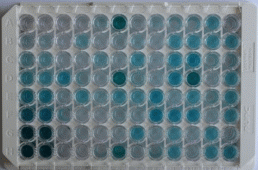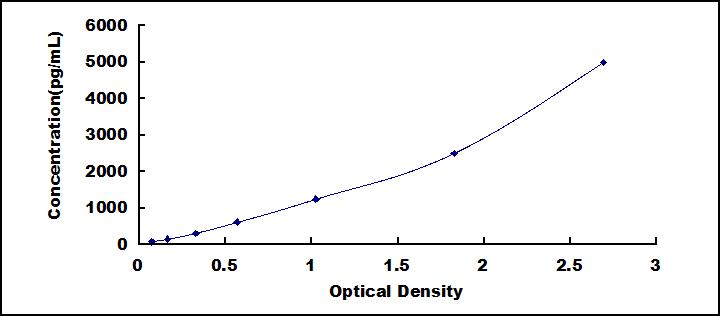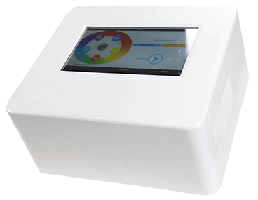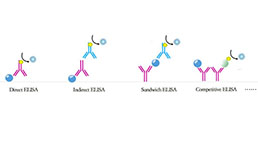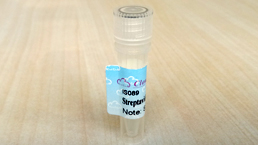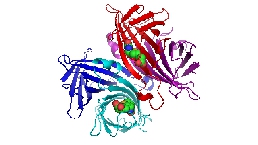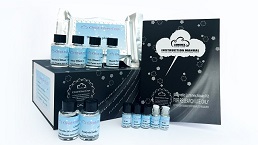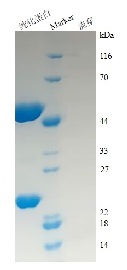Packages (Simulation)

Reagent Preparation

Image (I)
Image (II)
Certificate


ELISA Kit for Hyaluronidase (HAase)
Hyaluronic Lase; Hyaluroniclase
- Product No.SEB217Mu
- Organism SpeciesMus musculus (Mouse) Same name, Different species.
- Sample Typeserum, plasma, tissue homogenates and other biological fluids
- Test MethodDouble-antibody Sandwich
- Assay Length3h
- Detection Range78-5,000pg/mL
- SensitivityThe minimum detectable dose of this kit is typically less than 35pg/mL.
- DownloadInstruction Manual
- UOM 48T96T 96T*5 96T*10 96T*100
- FOB
US$ 479
US$ 684
US$ 3078
US$ 5814
US$ 47880
For more details, please contact local distributors!
Specificity
This assay has high sensitivity and excellent specificity for detection of Hyaluronidase (HAase).
No significant cross-reactivity or interference between Hyaluronidase (HAase) and analogues was observed.
Recovery
Matrices listed below were spiked with certain level of recombinant Hyaluronidase (HAase) and the recovery rates were calculated by comparing the measured value to the expected amount of Hyaluronidase (HAase) in samples.
| Matrix | Recovery range (%) | Average(%) |
| serum(n=5) | 82-95 | 87 |
| EDTA plasma(n=5) | 80-90 | 87 |
| heparin plasma(n=5) | 98-105 | 101 |
Precision
Intra-assay Precision (Precision within an assay): 3 samples with low, middle and high level Hyaluronidase (HAase) were tested 20 times on one plate, respectively.
Inter-assay Precision (Precision between assays): 3 samples with low, middle and high level Hyaluronidase (HAase) were tested on 3 different plates, 8 replicates in each plate.
CV(%) = SD/meanX100
Intra-Assay: CV<10%
Inter-Assay: CV<12%
Linearity
The linearity of the kit was assayed by testing samples spiked with appropriate concentration of Hyaluronidase (HAase) and their serial dilutions. The results were demonstrated by the percentage of calculated concentration to the expected.
| Sample | 1:2 | 1:4 | 1:8 | 1:16 |
| serum(n=5) | 88-96% | 83-91% | 79-101% | 94-103% |
| EDTA plasma(n=5) | 81-88% | 98-105% | 78-98% | 84-91% |
| heparin plasma(n=5) | 95-103% | 96-103% | 87-94% | 89-97% |
Stability
The stability of kit is determined by the loss rate of activity. The loss rate of this kit is less than 5% within the expiration date under appropriate storage condition.
To minimize extra influence on the performance, operation procedures and lab conditions, especially room temperature, air humidity, incubator temperature should be strictly controlled. It is also strongly suggested that the whole assay is performed by the same operator from the beginning to the end.
Reagents and materials provided
| Reagents | Quantity | Reagents | Quantity |
| Pre-coated, ready to use 96-well strip plate | 1 | Plate sealer for 96 wells | 4 |
| Standard | 2 | Standard Diluent | 1×20mL |
| Detection Reagent A | 1×120µL | Assay Diluent A | 1×12mL |
| Detection Reagent B | 1×120µL | Assay Diluent B | 1×12mL |
| TMB Substrate | 1×9mL | Stop Solution | 1×6mL |
| Wash Buffer (30 × concentrate) | 1×20mL | Instruction manual | 1 |
Assay procedure summary
1. Prepare all reagents, samples and standards;
2. Add 100µL standard or sample to each well. Incubate 1 hours at 37°C;
3. Aspirate and add 100µL prepared Detection Reagent A. Incubate 1 hour at 37°C;
4. Aspirate and wash 3 times;
5. Add 100µL prepared Detection Reagent B. Incubate 30 minutes at 37°C;
6. Aspirate and wash 5 times;
7. Add 90µL Substrate Solution. Incubate 10-20 minutes at 37°C;
8. Add 50µL Stop Solution. Read at 450nm immediately.
GIVEAWAYS
INCREMENT SERVICES
| Magazine | Citations |
| International Journal of Research in Pharmacy and Science | Pepsin, Papain and Hyaluronidase Enzyme Analysis: A Review. Ebscohost: Source |
| Diabetes | Coordination Among Lipid Droplets, Peroxisomes and Mitochondria Regulates Energy Expenditure Through the CIDE-ATGL-PPARα Pathway in Adipocytes Pubmed:29986925 |
| Critical Care | 6% Hydroxyethyl starch (HES 130/0.4) diminishes glycocalyx degradation and decreases vascular permeability during systemic and pulmonary inflammation … Pubmed:29716625 |
| Pakistan Journal of Pharmaceutical Sciences | Hyaluronan as a mediator for the hepatoprotective effect of Diosmin/Hesperidin complex. Pubmed:30033401 |
| Catalog No. | Related products for research use of Mus musculus (Mouse) Organism species | Applications (RESEARCH USE ONLY!) |
| PAB217Mu01 | Polyclonal Antibody to Hyaluronidase (HAase) | WB; IHC; ICC; IP. |
| SEB217Mu | ELISA Kit for Hyaluronidase (HAase) | Enzyme-linked immunosorbent assay for Antigen Detection. |
| LMB217Mu | Multiplex Assay Kit for Hyaluronidase (HAase) ,etc. by FLIA (Flow Luminescence Immunoassay) | FLIA Kit for Antigen Detection. |

